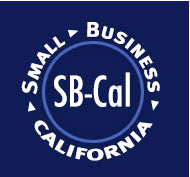Finally our Small Business Jobs bill has passed both the Senate and the House and will go to the President for his expected signature.
You have heard me talk about the lending side but I have not talked about some of the tax credits which are very significant. The expensing of $500,000 and the full deductibility of health insurance for the self employed.
Please see below a list of some of the credits. Thanks Rich for sending.
I want to thank Speaker Pelosi for her leadership in getting this through the House and Senators Boxer and Feinstein for their support.
Small Business California will continue to work on getting the filing of 1099s eliminated one way or the other.
Scott Hauge
President
Small Business California
2311 Taraval Street
San Francisco, CA 94116
shauge@cal-insure.com
415-680-2188
--------------------------------
Per my voicemail, here are some of the more common summary of the tax breaks for business in the Landrieu-Baucus substitute amendment to the House-passed jobs bill:
· For the first tax year of the taxpayer beginning in 2010, eligible small businesses could carry back unused general business credits for five years. Eligible small businesses would consist of sole proprietorships, partnerships and non-publicly traded corporations with $50 million or less in average annual gross receipts for the prior three years.
· For tax years beginning in 2010, eligible small businesses, as defined above, would be able to use all types of general business credits to offset their alternative minimum tax (AMT).
· Under current law, the Code Sec. 179 expensing limit for tax years beginning in 2010 is $250,000, and the maximum expensing amount is reduced (i.e., phased out, but not below zero) by the amount by which the cost of Code Sec. 179 property placed in service exceeds $800,000 (the investment ceiling). For tax years beginning after 2010, these amounts are to revert to $25,000 and $200,000 respectively. The substitute amendment would for tax years beginning in 2010 and 2011 increase the maximum Code Sec. 179 expensing amount to $500,000 and the investment ceiling to $2,000,000.
· For property placed in service after Dec. 31, 2009, for any tax year beginning in 2010 or 2011, qualified real property (qualified leasehold improvement property, qualified restaurant property, and qualified retail improvement property) would be eligible for $250,000 of expensing under Code Sec. 179. The dollar cap would apply to the aggregate cost of qualified real property.
· Bonus 50% first year depreciation would be extended to apply to property placed in service in 2010 (in 2011, for certain long production period property).
· For a tax year beginning in 2010, the deduction for startup expenses under Code Sec. 195 would be increased from $5,000 to $10,000 and the phaseout threshold would be increased from $50,000 to $60,000.
· For a tax year beginning after Dec. 31, 2009, but before Jan. 1, 2011, when calculating self-employment taxes, the deduction for health insurance costs of a self-employed taxpayer under Code Sec. 162(l) could be taken into account (i.e., could be deducted) in computing net earnings from self-employment.
· Cell phones would be removed from the definition of listed property under Code Sec. 280F, for tax years beginning after Dec. 31, 2009.
Revenue offsets. The substitute amendment would pay for its tax breaks with the following revenue raisers:
· For payments made after Dec. 31, 2010, persons receiving rental income from real property would have to file information returns to IRS and to service providers reporting payments of $600 or more during the year for rental property expenses. Exceptions would be provided for individuals renting their principal residences (including active members of the military), taxpayers whose rental income doesn't exceed an IRS-determined minimal amount, and those for whom the reporting requirement would create a hardship (under IRS regs).
· For information returns required to be filed after Dec. 31, 2010, the Code Sec. 6721 penalties for failure to timely file information returns to IRS would be increased. For example, the first-tier penalty would be increased from $15 to $30, and the calendar year maximum would be increased from $75,000 to $250,000. For small filers, the calendar year maximum would be increased from $25,000 to $75,000 for the first-tier penalty. The minimum penalty for each failure due to intentional disregard would be increased from $100 to $250. The Code Sec. 6722 penalties for failure to file information returns to payees would be similarly increased.
Source: Thomson Reuters
Rich Gunn, C.P.A.
Shareholder
Burr Pilger Mayer, Inc.
600 California Street, Suite 1300
San Francisco, CA 94108
Tel: 415-288-6218
Fax: 415-288-6288
rgunn@bpmcpa.com
www.bpmcpa.com
Subscribe to:
Post Comments (Atom)



No comments:
Post a Comment